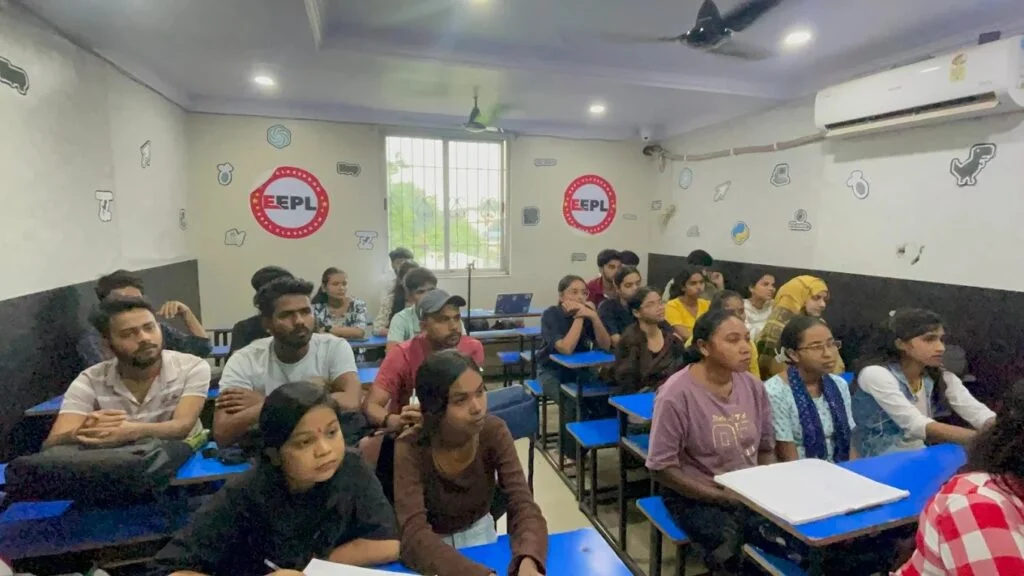Understanding the NEET UG and Its Significance
The National Eligibility cum Entrance Test Undergraduate (NEET UG) serves as a pivotal examination for students aiming to pursue medical and dental courses across India. Established under the auspices of the National Testing Agency (NTA), NEET UG is designed to streamline the admission process for health sciences programs by offering a standardized assessment for aspiring candidates. The test encompasses a comprehensive syllabus that includes key subjects such as Biology, Physics, and Chemistry, ensuring a holistic evaluation of a candidate’s proficiency and understanding in the relevant fields.

For many years, the NEET UG has been synonymous with opportunities for students in the field of medicine. As regulations evolve, the test’s scope is also expanding to include students from diverse academic backgrounds, such as those who have pursued the PCM (Physics, Chemistry, Mathematics) stream. This significant shift opens new avenues for PCM students to enter the realm of biotechnology, where they can contribute to advancements in healthcare, pharmaceuticals, and research.
The examination’s structure generally comprises multiple-choice questions that assess a candidate’s knowledge and readiness for rigorous academic programs. By successful completion of NEET UG, candidates gain access to an array of undergraduate programs in prestigious medical and dental colleges, as well as various health sciences courses. Not only does NEET UG play a critical role in determining successful admissions, but it also sets the groundwork for the future of health professionals in the country.
The prospect of PCM students participating in NEET UG represents a transformative opportunity in an era where interdisciplinary collaboration is paramount in fields like biotechnology. This progressive change not only diversifies the pool of candidates but also enriches the educational and professional landscape. In conclusion, NEET UG stands as a vital foundation for fostering skilled professionals who will drive innovations and improve healthcare outcomes for society.
Eligibility Criteria and the Inclusion of PCM Students
Recent shifts in the eligibility criteria for the National Eligibility cum Entrance Test (NEET UG) have opened the door for students from the Physics, Chemistry, and Mathematics (PCM) stream. Historically, NEET UG has primarily catered to students with a background in Biology, thereby limiting the opportunities available for PCM students in the field of biotechnology and other medical sciences. However, the recent decision to include these students acknowledges the evolving nature of careers in biotechnology, which increasingly intersects with various scientific disciplines, including Mathematics and Physics.
The rationale behind this inclusion stems from the recognition that modern biotechnology relies heavily on a multifaceted approach. By allowing PCM students to sit for the NEET UG, authorities appreciate the significant contributions these students can make, given their strong foundation in analytical and problem-solving skills. Notably, programmes in biotechnology derive substantial benefits from mathematical modeling and chemical analysis, further emphasizing the necessity of a comprehensive scientific background.
This change has profound implications for PCM students as it enhances their career paths and academic options. With the integration of these students into the NEET UG, a variety of interdisciplinary fields are now accessible. For instance, not only does biotechnology offer traditional medical roles, but it also encompasses roles in bioinformatics, pharmaceutical development, and environmental biotechnology—all of which require a robust understanding of mathematics and physics in conjunction with biological sciences.
Consequently, this reformed eligibility criteria fosters a broader understanding of scientific concepts, ultimately leading to innovative solutions in health and technology sectors. Students equipped with diverse skill sets will contribute to groundbreaking advancements in biotechnology, making a significant impact on future developments across many industries.
Impact on Biotechnology as a Career Choice
The recent decision to allow PCM students to appear for NEET UG has significant implications for the field of biotechnology. This interdisciplinary shift reflects an evolving understanding of the diverse skill sets that can enhance the biotechnology sector. As biotechnology continues to play a transformative role across various industries, the inclusion of students with a physics, chemistry, and mathematics background opens up new avenues for innovation and growth.
Biotechnology is at the forefront of numerous advancements in healthcare, agriculture, and environmental sustainability. For instance, the fusion of engineering principles from PCM studies with biological sciences can lead to innovative solutions in drug development, genetic engineering, and bioinformatics. This intersection fosters a broader scope for PCM students, who can now leverage their quantitative skills in scientific research and product development.
In addition, the career prospects in biotechnology are expanding rapidly. With a background in PCM, students can pursue various roles, such as biotechnologists, regulatory affairs specialists, or bioinformatics analysts. These positions require a strong foundation in both scientific principles and analytical thinking, which PCM students are well-equipped to fulfill. Moreover, biotechnology companies are increasingly seeking professionals who can contribute to areas like data analysis for genome sequencing and bioprocess optimization, areas where a PCM background is invaluable.
Furthermore, the growing importance of biotechnology in addressing global challenges, such as pandemics and climate change, underscores the need for diverse skill sets in the industry. By integrating their knowledge of physical and chemical processes with biological applications, PCM students can make noteworthy contributions to healthcare innovations and sustainability efforts. This newfound eligibility not only elevates the attractiveness of biotechnology as a career choice but also enhances the potential for groundbreaking developments in the field.
Preparing for NEET UG: Tips and Resources for PCM Students
As PCM students transition to preparing for the NEET UG examination, it is essential to adopt effective study strategies that cater specifically to the unique challenges posed by this life sciences assessment. Understanding biology concepts becomes crucial, as the NEET UG syllabus predominantly revolves around biology, alongside physics and chemistry. To excel, students should begin with a structured study plan that incorporates time allocation for each subject, with a significant focus on biology, given its extensive weightage in the examination.
One of the first steps in preparation is to identify reliable study materials. Standard textbooks for NEET UG, such as NCERT for biology, are indispensable due to their comprehensive coverage of the syllabus and clarity of concepts. Additionally, for PCM students, integrating biotechnology resources can provide a contextual understanding of biological processes and their applications. Online platforms and mobile applications can also offer interactive learning experiences, quizzes, and mock tests to reinforce biological knowledge and improve examination techniques.
Moreover, developing new study habits is crucial for PCM students. This includes practicing previous years’ NEET UG papers, which allows students to familiarize themselves with the exam pattern, identify important topics, and improve their time management skills during the examination. Utilizing video lectures and tutorials can also help clarify complex biological concepts, bridging the gap between their prior knowledge and the requirements of the NEET UG exam.
A positive mindset can significantly influence one’s preparation journey. Students should embrace biology as a fascinating field of study that connects to their existing knowledge from physics and chemistry. Engaging in study groups or discussions can foster motivation and offer diverse perspectives on challenging topics. Ultimately, a disciplined approach combined with a focus on understanding the fundamental concepts will position PCM students for success in securing a competitive edge in the NEET UG examination.
For More Information and Updates, Connect With Us
- Name: Abhishek Kumar
- Phone Number: +91-7488456170
- Email ID: teamemancipation@gmail.com
- Our Platforms:
- Digilearn Cloud
- EEPL Test
- Live Emancipation
- Follow Us on Social Media:
- Instagram – EEPL Classroom
- Facebook – EEPL Classroom










